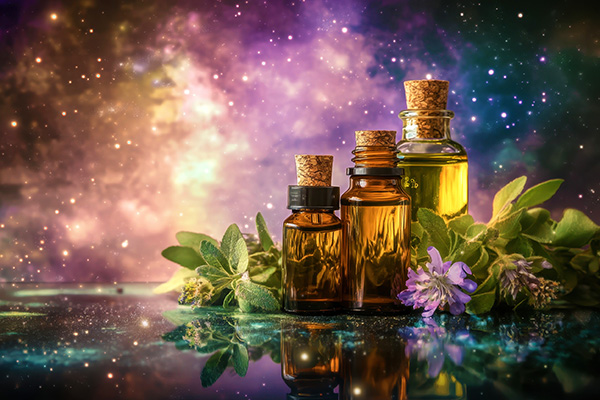How to Uphold Self-Respect in Difficult Family Interactions
 Family relationships can often be exceedingly intricate. These connections are layered and deeply rooted, frequently spanning generations.
Family relationships can often be exceedingly intricate. These connections are layered and deeply rooted, frequently spanning generations.
A sizable number of my clients seek psychic perspectives on familial issues. After matters of romance and love, alongside career or business, family remains one of the most emotionally charged topics.
During readings, particularly with empaths, intuitives, and hypersensitive individuals, I encounter numerous accounts of familial struggles. Many individuals feel a persistent sense of not belonging, of being misunderstood, or unfairly blamed.
These emotional weights often become the most challenging burdens to carry, as they are linked to those we first loved and continue to love, despite past pain.
When aspects like control or financial issues weave into family ties, the complexity of these relationships escalates.
For many, family embodies a love-hate relationship or a profound connection that harbors significant wounds. While we cannot select our family, we do possess the ability to influence how we interact with them, our responses, and the choice of whether we remain engaged.
Severing familial bonds represents a monumental and often heart-wrenching choice that is never made lightly. By the time an individual considers this option, drama or emotional abuse may have persisted for decades, rooted sometimes in painfully vivid childhood experiences.
Not everyone is in a position where cutting ties is viable or desired. Imperfect as it may be, family can still offer love, shared experiences, and connection.
Family is meant to be our sanctuary. Too often, it becomes the source of our deepest sorrow ~ Iyanla Vanzant
The spiritual journey often enlightens us to the reality of duality. Both positive and negative can coexist in the same environment, sometimes simultaneously. If this resonates with your situation, it’s vital to approach family connections with self-compassion.
Here are several spiritually anchored methods to regulate and safeguard your energy while preserving family ties:
Claim Your Power
You are no longer that voiceless child. You are a soul endowed with agency, wisdom, and choices. One of the most empowering affirmations you can adopt is, “I am free to choose what nurtures my peace.”
Your painful past does not dictate that your future must mirror it. Embrace the present with the understanding that you are not confined. Psychic insights can assist you in identifying the energy patterns that shape you and suggest approaches to liberate yourself from outdated roles.
Establish Boundaries
Boundaries are not barriers; they serve as pathways to healthier relationships. Loving someone from a distance is a spiritual affirmation. Safeguarding your energy is a sacred responsibility.
Reflect on which interactions deplete your energy, and set limits accordingly. Keep phone conversations short, divert discussions away from sensitive topics, and grant yourself permission to disconnect if the vibes turn toxic. Let your boundaries act as a loving shield rather than a weapon.
Reassess Family Gatherings
Holidays and birthdays frequently transform into emotional hazards. While these meetings may seem obligatory, if attending consistently leads to stress, illness, or emotional turmoil, consider: Is this essential for my spiritual growth? Guilt should not guide spiritual alignment. Genuine connections cannot flourish in an atmosphere of fear or repression.
If you foresee conflict and recognize that attending will cost you your peace, it’s reasonable to opt out. There are numerous sacred methods to honor your ancestry and family legacy that do not compromise your emotional health.
Break Family Cycles
Energy flows through families like rivers through valleys. We tend to inherit not just physical characteristics but emotional and spiritual patterns as well. If you grew up in a family devoid of healthy communication, empathy, or emotional safety, those same dynamics likely resurface in other areas of your life.
However, these cycles can be disrupted. Change begins with awareness. It may initially feel daunting, but when you alter your behavior—saying no instead of yes, resisting conflict, or choosing tranquility over chaos—you create waves of healing throughout your family line.
This transformation may not always be welcomed. Prepare for resistance. When you cease playing a familiar role, others might feel threatened or puzzled. Remember, you are not meant to bear the emotional burdens of others. You are here to live your own truth.
Healing from family scapegoating requires acknowledging that being the ‘identified patient’ signals generations of systemic dysfunction within one’s family, driven by unrecognized anxiety and even trauma ~ Rebecca C. Mandeville
Foster Patience
There is no universal method for healing familial wounds. For some, reconciliation might be achievable, while others may find peace in letting go. Both paths are valid. Your spiritual journey belongs to you. Collaborating with a psychic, therapist, or healer familiar with energetic dynamics can be beneficial in untangling the complexities of familial karma. Past life readings or ancestral healing sessions may unveil deeper aspects of your current struggles and illuminate why certain cycles recur.
Build A Chosen Family
If your biological family cannot meet your need for love and support, remember you can cultivate your own spiritual community. Many sensitive individuals discover their true family later in life—those kindred spirits who empathize with them, uplift them, and encourage their growth. Such relationships often align with your soul’s contract and appear when you are ready. Trust that you are never alone.
Heed Your Intuition
You possess an inner guide. It will always steer you towards what nourishes you and away from what drains you. Before interacting with family, check in with yourself. What messages is your body conveying? How do you feel energetically? What insights are surfacing in your dreams or internal awareness? When uncertain, take time to ground your energy and seek spiritual guidance. You will find the way.
One of the most vital insights I can share is that you deserve peace. Regardless of your history or your family’s narrative, you are not confined to it. You are a sovereign being. Your path might entail profound healing and loss, yet it also holds the potential for radiant liberty.
If your family bonds are bringing about confusion, anguish, or turmoil, seek clarity without hesitation. A psychic reading can provide insights into the energetic dynamics involved, uncover hidden patterns, and give you guidance on how to proceed with clarity and grace.
Ultimately, whether you choose to remain close to your family or create distance, what matters most is honoring your heart and spirit. You have the inherent right to prioritize your well-being. Peace and tranquility are not luxuries; they are spiritual essentials. And you, dear soul, are worthy of both.
|
Empathic, intuitive, and psychic from an early age, Angelic Heights (Gail) recognized the vital importance of utilizing her gifts for the greater good. Marriage and a career in the paralegal domain kept her occupied until her early thirties. Now, she dedicates her focus entirely to enlightening, encouraging, inspiring, and guiding those who seek her insight. Gail believes understanding the energy of those we choose to engage with is crucial. Regardless of the issue—be it love, career, business, or family—the vital needs of every client shine through clearly in her readings. She swiftly hones in on core concerns and delivers precise messages and solutions. Connect with her for a reading at PsychicAccess.com |
Sustaining self-respect in difficult family situations can be challenging, yet it is vital for your mental and emotional health. Family dynamics can often be intricate and sometimes strained; however, it’s essential to remember that you deserve to be treated with dignity and respect, no matter the circumstances. Here are some strategies for maintaining self-respect in challenging familial situations:
1. Establish boundaries: It’s crucial to define boundaries with family members who may be toxic or disrespectful. This could mean limiting your interactions with them or explicitly communicating unacceptable behaviors. Setting boundaries is a way to protect yourself and maintain your self-respect.
2. Prioritize self-care: Caring for yourself is essential in upholding self-respect. Ensure you prioritize your physical and emotional well-being by engaging in activities that bring you joy and tranquility. This could incorporate exercise, meditation, socializing with friends, or pursuing hobbies that bring you satisfaction.
3. Seek support: It may be beneficial to find support from friends, a therapist, or a support group when coping with challenging family dynamics. Speaking to someone who comprehends your situation can provide validation and perspective and assist you in managing difficult emotions.
4. Practice assertiveness: Assertiveness is crucial in maintaining self-respect. It entails communicating your thoughts, feelings, and needs clearly and respectfully. Practice assertive communication with family members, and don’t hesitate to voice your needs when necessary.
5. Concentrate on what you can control: In trying family situations, it’s easy to feel powerless and overwhelmed. Focus on what you can control, such as your own actions and reactions. Remember that while you can’t change others, you can choose how you respond to them.
6. Cultivate self-compassion: Be gentle with yourself and practice self-compassion in demanding family dynamics. Understand you are doing your best in a challenging situation, and it is okay to prioritize your own well-being. Treat yourself with the same kindness and understanding you would extend to a friend.
Maintaining self-respect in challenging familial dynamics is a process that requires patience, self-awareness, and self-care. Remember, you deserve to be treated with dignity and respect, and don’t hesitate to prioritize your well-being in tough situations. By establishing boundaries, prioritizing self-care, seeking support, practicing assertiveness, focusing on what you can control, and cultivating self-compassion, you can navigate difficult family dynamics while preserving your self-respect. Continue reading















